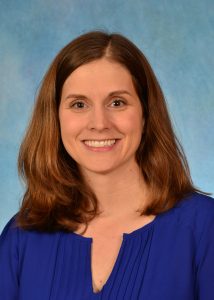
It’s been shown that when two people wearing masks interact, the chance of COVID-19 transmission is drastically reduced. This is why public health officials have pleaded for all people to wear masks: they not only protect the wearer from expelling particles that might carry SARS-CoV-2, the virus that causes coronavirus 2019 (COVID-19), but masks also protect the wearer from inhaling particles that carry the virus. Some people, though, still refuse to wear a mask. So UNC School of Medicine scientists, in collaboration with the Environmental Protection Agency, researched the protectiveness of various kinds of consumer-grade and modified masks, assuming the mask wearer was exposed to the virus, like when we interact with an unmasked infected person.
Published in the journal JAMA Internal Medicine, the research shows that some masks were as much as 79 percent effective at blocking particles that could carry the virus. These were masks made of two layers of woven nylon and fit snug against the wearer’s face. Unmodified medical procedure masks with ear loops – also known as surgical masks – offered 38.5 percent filtration efficacy, but when the ear loops were tied in a specific way to tighten the fit, the efficacy improved to 60.3 percent. And when a layer of nylon was added, these masks offered 80 percent effectiveness.
“While modifications to surgical masks can enhance the filtering capabilities and reduce inhalation of airborne particles by improving the fit of the mask, we demonstrated that the fitted filtration efficiencies of many consumer-grade masks were nearly equivalent to or better than surgical masks,” said co-first author Phillip Clapp, PhD, an inhalation toxicologist and assistant professor of pediatrics at the UNC School of Medicine.
Co-first author Emily Sickbert-Bennett, PhD, director of infection prevention at the UNC Medical Center, added, “Limiting the amount of virus is important because the more viral particles we’re exposed to, the more likely it is we will get sick and potentially severely ill.”
Learn more from the UNC Health and UNC School of Medicine Newsroom.
Sickbert-Bennett was also featured on Coastal Virginia’s WTKR News discussing mask effectiveness. This report can be accessed here.